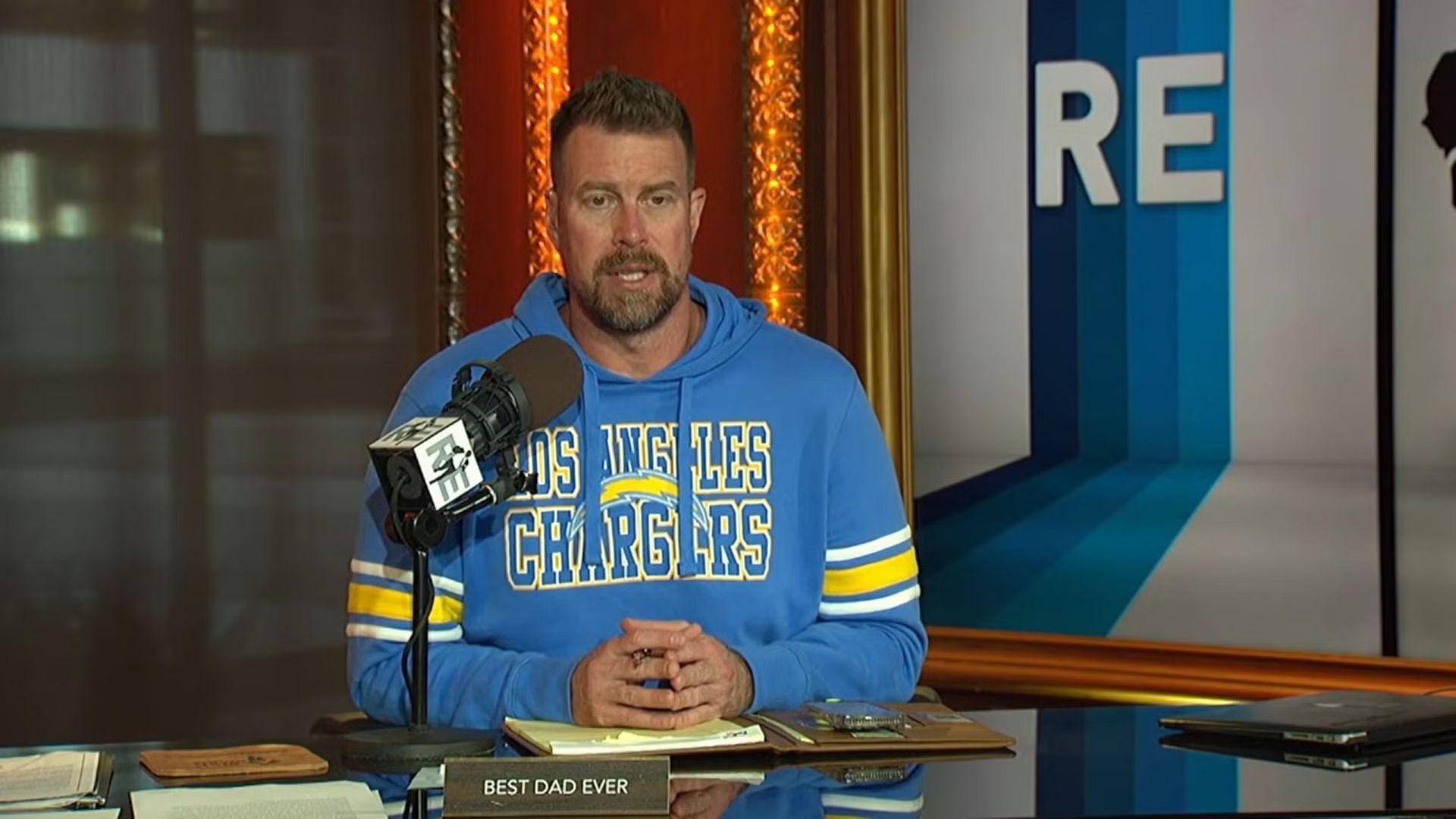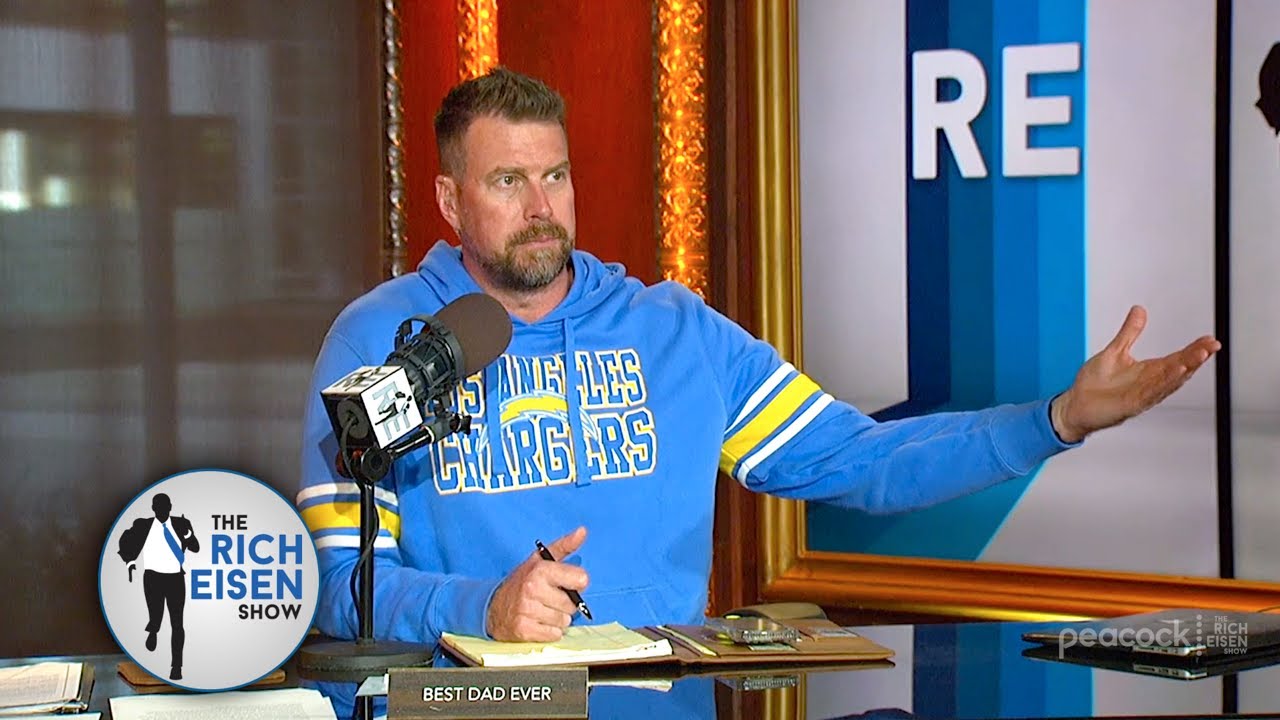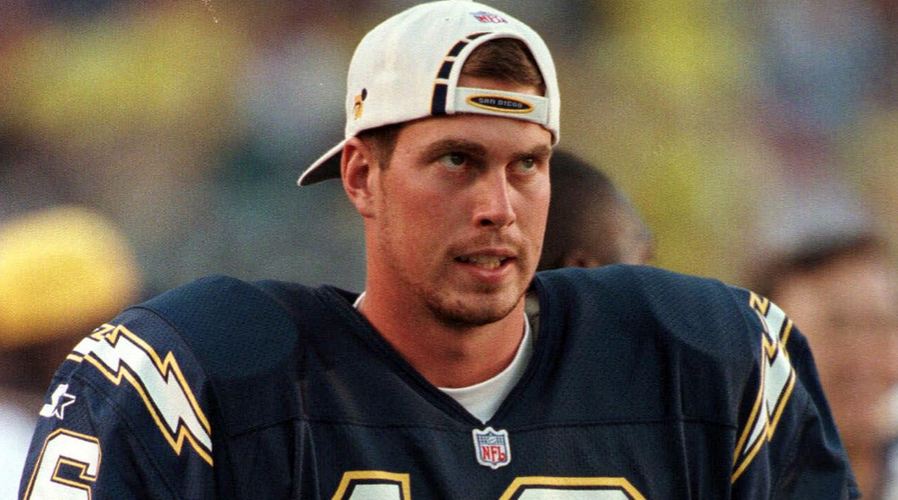Ryan Leaf Net Worth In 2023, Birthday, Age, Wife And Kids
Former American football player Ryan Leaf spent four seasons as a quarterback in the National Football League. Ryan Leaf net worth is $12 million. Ryan Leaf was selected in the second round of the 1998 NFL draft after playing four years of excellent college football at Washington State University. He was picked immediately after Peyton Manning. Leaf inked a four-year deal with the Chargers for $31.25 million, which included a guaranteed $11.25 million signing bonus.
Author:Alex MercerReviewer:Nathanial BlackwoodAug 30, 20232.7K Shares174.8K Views

Former American football player Ryan Leaf spent four seasons as a quarterback in the National Football League. Ryan Leaf net worthis $12 million. Ryan Leaf was selected in the second round of the 1998 NFL draft after playing four years of excellent collegefootball at Washington State University. He was picked immediately after Peyton Manning. Leaf inked a four-year deal with the Chargers for $31.25 million, which included a guaranteed $11.25 million signing bonus.
Sadly, his first season was characterized by subpar performances. He was fined for skipping a seminar that was required of all newly selected players. He didn't get along with his teammates or the media. A shoulder injury discovered during a pre-season exam resulted in him missing the whole of his second season.
The 2000 season's first two games saw him start, although he only completed fewer than half of his passes, resulting in five interceptions and one score. The Tampa Bay Buccaneers chose him after San Diego released him in March 2001 because they were impressed by his physical prowess and intended to help him steadily hone his skills by letting him observe and absorb. Eight operations in 15 years due to sports-related injuries led in a prescription drug addiction. For criminal burglary and cocaine possession, he received a jail term in 2012.
Quick Facts About Ryan Leaf
| Name | Ryan Leaf |
| Date Of Birth | May 15, 1976 |
| Place Of Birth | Great Falls |
| Gender | Male |
| Profession | American football player |
| Nationality | United States of America |
| Net Worth | $12 Million |
Early Life
On May 15, 1976, Ryan Leaf was born in Great Falls, Montana. After being selected by the San Diego Chargers in the second round of the 1998 NFL Draft, the former NFL quarterback went on to become one of the worst flops in NFL history. Jerry Jones sought him, and in 2001, the Dallas Cowboys signed him. While playing at Washington State University, he was a 1998 Heisman Trophy finalist and Pac-10 Offensive Player of the Year.
College Career
He was a student at Charles M. Russell High School, where he helped his team win the 1992 Montana state championship. After graduating, Leaf received a scholarship to play quarterback for Mike Price's Washington State University team. He participated in 32 games for Washington State throughout his collegiate career, starting 24 of them.
He passed for an astonishing 33 touchdowns during his junior year, which was a record for the Pacific-10 Conference at the time, averaging over 330 yards per game. Leaf also helped Washington State win its first-ever Pac-10 title.
A finalist for the Heisman Trophy as a result of his accomplishment, Leaf finished third behind Charles Woodson and Peyton Manning. Also recognized was him as the Pac-10 Offensive Player of the Year. After that, Leaf decided to skip his senior year and declare for the 1998 NFL draft.

Ryan Leaf: My NFL Downfall Began at the 1998 NFL Combine | The Rich Eisen Show
San Diego Chargers
The San Diego Chargers selected Leaf in the second round of the highly competitive selection when he was selected second behind Peyton Manning, who was widely considered to be the finest player available. He was given a four-year, $31.25 million deal by the organization, which featured the highest signing bonus ever given to a rookie at the time a guaranteed $11.25 million.
Due to his unruly demeanor, Leaf immediately showed that he would cause problems for the squad. He was fined $10,000 for skipping the last day of a required draftee seminar. Even though Leaf guided the Chargers to victories in their first two games of the season, a virus, a number of turnovers, and a confrontation with a newspaper reporter only served to draw unfavorable attention to him.
He concluded the season with 1,289 passing yards and a terrible quarterback rating of 39.0 thanks to a 45.3% completion rate. It didn't get any better for Leaf in 1999, as he missed the whole season due to a shoulder ailment and surgery. He also got into a yelling altercation with a coach, which led to a fine and an unpaid suspension.
Leaf broke his contract when he was seen playing flag football in a park when he was suspended. When Leaf led the Chargers to a win against the Arizona Cardinals in 2000, things started to turn around. But more defeats followed, along with further harm that limited his ability to play. The Chargers still lost despite Leaf's 71-yard touchdown throw to Jeff Graham in the season's last game. Leaf completed 50% of his passes for 1,883 yards and 11 touchdowns in his third season. The Chargers dismissed Leaf in 2001 as a result of their dismal 1-15 season record.
Ryan Leaf's Net Worth And Salary
The next year, he signed up with the Dallas Cowboys, earning $418,000 annually. As of August 2023, Ryan Leaf's net worth is anticipated to be about $12 million. Over the course of his work, Ryan accumulated a sizeable wealth.
In 1998, he inked a deal for $13,200,000 with the San Diego Chargers. He was paid $200,000 a year and earned a signing bonus of $11,200,000. Next year, his pay increased to $250,000. He received a $500,000 roster bonus from the San Diego Chargers in 2000, and his pay was increased to $358,000.
Tampa Bay Buccaneers And Dallas Cowboys
Leaf was acquired by the Tampa Bay Buccaneers only two days after leaving the Chargers. After a poor preseason, he was requested to accept a promotion to the fourth quarterback position with lesser pay since his wrist injury had still not healed. Five days before the start of the season, Leaf was let go by the Buccaneers after he refused.
With the Dallas Cowboys, Leaf tried to make a return but was once again in difficulty after failing his first physical. Quincy Carter, the Cowboys' normal starter, had an injury, giving Leaf a second shot. But after only four games, all defeats, Leaf was once again cut loose.
Seattle Seahawks And Retirement
The Seattle Seahawks gave Leaf a second opportunity at redemption when they signed him to a one-year deal. He showed up for the team's spring minicamps, but at the age of 26, he unexpectedly and mysteriously resigned. In the 25 games he played in during his short NFL career, Leaf completed 317 of 655 passes for 3,666 yards and 14 touchdowns. His final quarterback rating throughout his whole career was a dismal 50.
Since then, Leaf's playing legacy has gained a lot of attention. On their list of the 25 greatest sports disasters between 1979 and 2004, ESPN gave him the top spot. He was named the best NFL quarterback bust of all time by NFL Network in 2010.
Ryan Leaf Wife
The daughter of financial radio personality Ray Lucia and a Charger cheerleader, Nicole Lucia, was married to Leaf in 2001. In November 2003, they parted ways and ultimately got divorced. He and former Georgetown Hoyas volleyball player Anna Kleinsorge got engaged in 2017.
Ryan Leaf Kids
Anna Kleinsorge, a former collegiate volleyball player, and Leaf are now married and have a kid.
Legal Troubles
In 2009, Leaf was charged with burglary and drug possession in Texas. He entered a plea of guilty to seven charges the following year and was given 10 years of probation and a $20,000 fine. When Leaf was detained in Montana in 2012 on suspicion of burglary, larceny, and drug use, he found himself in even greater trouble. He was detained once again four days later on suspicion of burglary, larceny, and narcotics possession. Leaf received a sentence of seven years in prison, but two of those years will be suspended provided he complies with the judge's rules.
Post-Playing Career
Leaf came to San Diego to work as a financial consultant after leaving the NFL. He then started his studies at Washington State in 2004 and received a BA in humanities. He began serving as a volunteer quarterback coach at West Texas A&M University in 2006.
He was placed on indefinite leave two years later when it was claimed that he requested a player for opioids, to which he was long-term addicted. Then Leaf sent his letter of resignation. For a short while in 2009, Leaf served as the Vancouver office's business development manager for a travel agency.
The following year, he began contributing a monthly football column to the website Cougfan.com and landed a deal with Crimson Oak Publishing to write three autobiographies. For Transcend Recovery Community, a network of sober living homes with facilities in Los Angeles, Houston, and New York, Leaf has served as a program ambassador since 2018. Leaf also hosts a radio program and provides analysis on college football for the Pac-12 Network.

How BAD Was Ryan Leaf Actually?
Interesting Facts About Ryan Leaf
- He played college football for the Washington State Cougars from 1995 to 1997.
- In 1997, Leaf finished third in the Heisman Trophy voting, behind winner Charles Woodson and runner-up Peyton Manning.
- Leaf was selected as the second overall pick in the 1998 NFL Draft by the San Diego Chargers.
- He and Peyton Manning were widely considered the top quarterback prospects in the 1998 NFL Draft, leading to significant debate about who would have the more successful NFL career.
- Leaf's NFL career was plagued by injuries, inconsistent performance, and off-field issues, leading to his struggles on and off the field.
- He played for the San Diego Chargers from 1998 to 2000 and later had brief stints with the Tampa Bay Buccaneers, Dallas Cowboys, and Seattle Seahawks.
- Leaf's infamous "rivalry" with Peyton Manning in the NFL led to comparisons between the two quarterbacks throughout their careers.
- He set several rookie passing records during his first season in the NFL, but he ultimately did not live up to the high expectations set for him as a top draft pick.
- After retiring from the NFL, Leaf faced legal troubles and struggled with addiction issues.
- Following his personal struggles, Leaf sought treatment and embarked on a path of recovery.
- He has been actively involved in advocacy work for mental health and addiction awareness, sharing his story to help others facing similar challenges.
- Ryan Leaf has worked as a college football analyst for ESPN and the Pac-12 Network.
- Despite his football struggles, he remains humble about his career and the lessons he learned.
- Leaf has been vocal about using his experiences as a cautionary tale and an opportunity to promote positive change and personal growth.
People Also Ask
Which College Did Ryan Leaf Play Football For, And During Which Years?
Ryan Leaf played college football for the Washington State Cougars from 1995 to 1997.
In Which NFL Team Was Ryan Leaf Drafted, And What Was His Draft Position?
Ryan Leaf was drafted by the San Diego Chargers as the second overall pick in the 1998 NFL Draft.
Who Were Ryan Leaf's Main Quarterback Rivals During His Career?
Ryan Leaf's main quarterback rival during his career was Peyton Manning, who was drafted as the first overall pick in the same 1998 NFL Draft.
What Is Ryan Leaf's Post-football Advocacy Work Focused On?
Ryan Leaf's post-football advocacy work is centered around mental health and addiction awareness. He uses his personal struggles with addiction to educate and help others facing similar challenges.
Conclusion
In conclusion, Ryan Leaf's life and career have been marked by both highs and lows. He rose to prominence as a highly-touted college quarterback at Washington State University and was drafted as the second overall pick in the 1998 NFL Draft. However, his NFL career did not live up to the expectations set for him, and he faced numerous challenges on and off the field.
Following his football career, Leaf faced personal struggles with addiction and legal issues. However, he eventually sought treatment and turned his life around. Since then, he has become an advocate for mental health and addiction awareness, using his own experiences to help others and promote positive change.

Alex Mercer
Author
Alex Mercer is a seasoned author and analyst specializing in wealth research, with a keen focus on evaluating the net worth of individuals across various industries. With over a decade of experience in financial analysis and wealth assessment, Alex has developed a nuanced understanding of the factors that contribute to an individual's financial status, from investments and assets to market trends and economic policies. His work involves in-depth reviews and analyses, providing insightful observations on wealth accumulation, management strategies, and the socio-economic implications of wealth distribution.
Throughout his career, Alex has become known for his ability to distill complex financial data into understandable and engaging narratives, making the subject of wealth and net worth accessible to a broad audience. His expertise is not just in numbers but in telling the stories behind them, highlighting the journeys, strategies, and decisions that lead to financial success or challenges. Alex's contributions to the field of wealth research are valuable resources for anyone looking to understand the dynamics of wealth in today's world, offering a unique perspective that bridges the gap between financial analysis and human interest.

Nathanial Blackwood
Reviewer
Nathanial (Nate) Blackwood is a distinguished financial journalist with a decade of experience in net worth analysis. He holds an Economics degree from the University of Finance and a Data Analysis certification, enabling him to blend thorough insights with engaging storytelling. Nate is known for making complex financial information accessible to a wide audience, earning acclaim for his precise and reader-friendly analyses. Beyond his writing, Nate is dedicated to financial literacy, actively participating in educational forums and workshops.
He is the founder of PureNetWealth, a platform that demystifies the financial achievements of public figures by exploring the strategies and decisions behind their fortunes. Nate's work bridges the gap between intricate economic concepts and the general public, inspiring a deeper understanding of wealth dynamics. Follow Nathanial Blackwood for essential insights into the financial narratives shaping our world.
Latest Articles
Popular Articles
